Economic Planning
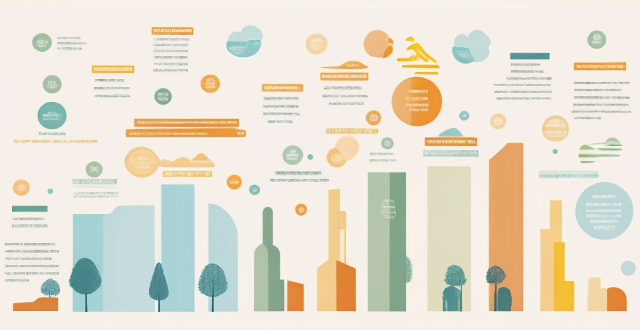
How does tax planning affect a country's economy ?
Tax planning is a crucial component of any country's fiscal policy, as it affects various aspects of the economy, including government spending, investment decisions, and consumer behavior. Increased tax revenue can lead to higher government spending in critical sectors like healthcare and education, which can improve living standards and stimulate economic growth. Tax incentives can encourage businesses to invest in areas aligned with economic objectives, leading to job creation and technological advancements. Additionally, tax planning can influence consumer behavior by affecting prices, discouraging consumption of certain products, and promoting responsible spending habits. Overall, effective tax planning is essential for fostering economic growth, enhancing living standards, and promoting sustainable development.

Why is it important for women to have a solid understanding of financial planning and wealth management ?
The importance of financial planning and wealth management for women is underscored by the need for financial independence, empowerment, and long-term stability. Women face unique challenges such as longer life expectancies and potential career interruptions, making it crucial for them to be financially savvy. Understanding key areas like budgeting, investing, insurance, and retirement planning can help mitigate risks and ensure economic security. Financial literacy is not just about managing money but also about gaining confidence, independence, and the ability to lead a fulfilled life.

What are the potential economic benefits of sharing climate information ?
The potential economic benefits of sharing climate information include improved decision making through better planning and management, risk assessment and mitigation, increased efficiency and productivity, innovation and new business opportunities, and growth of the green economy. By leveraging this information effectively, businesses, governments, and individuals can adapt to changing climatic conditions while minimizing risks and maximizing economic gains.

How might rising sea levels due to global warming affect coastal city planning ?
Rising sea levels pose a significant threat to coastal cities, necessitating comprehensive changes in urban planning. These changes include re-evaluating flood risk assessments, implementing coastal protection measures, updating land use planning, enhancing infrastructure resilience, and fostering community engagement. By adopting proactive planning strategies, coastal cities can mitigate the impacts of sea level rise and build more resilient communities for the future.

How important is meal planning for maintaining a healthy diet ?
Meal planning is crucial for maintaining a healthy diet, as it allows for improved nutritional intake, time management, cost savings, and stress reduction. To implement meal planning effectively, set realistic goals, create a weekly plan, involve family members, keep it simple, and use technology to simplify the process. By following these tips, you can achieve a healthier lifestyle through effective meal planning.

How can we balance public health concerns with economic recovery during pandemic management ?
Balancing public health concerns with economic recovery during pandemic management involves implementing widespread testing, efficient contact tracing programs, vaccination campaigns, and clear public health messaging. It also requires targeted restrictions, financial aid, adaptive workplaces, infrastructure investments, and building consumer confidence. Long-term planning includes strengthening health systems, fostering economic diversification, investing in research and innovation, and creating emergency funds. Collaborative governance through intersectoral collaboration, global cooperation, and stakeholder engagement is essential for navigating the dual challenge of protecting public health while fostering economic stability and growth during a pandemic.

How can we balance economic growth with environmental sustainability ?
Balancing economic growth with environmental sustainability requires a multifaceted approach that includes promoting green infrastructure and renewable energy, encouraging sustainable business practices, fostering innovation and technology development, educating and engaging stakeholders, and implementing policies and regulations. By taking these steps, we can create a more sustainable future where economic prosperity coexists with environmental well-being. Achieving this balance will require ongoing effort from all sectors of society, including governments, businesses, communities, and individuals alike.

How can climate and environmental policies be designed to promote sustainable economic growth ?
This text discusses the integration of environmental considerations into economic planning, promoting renewable energy sources, encouraging energy efficiency, supporting green infrastructure, promoting circular economy practices, strengthening environmental regulations, and fostering international cooperation to promote sustainable economic growth.

What is estate planning ?
Estate planning is a comprehensive process involving the organization, management, and distribution of assets to minimize taxes and ensure wealth transfer to heirs. Key elements include wills, trusts, power of attorney, health care directives, beneficiary designations, gifting strategies, tax planning, asset protection, long-term care planning, family business succession, and charitable giving. Estate planning ensures wishes are honored, provides financial security, minimizes taxes and legal fees, and protects beneficiaries.
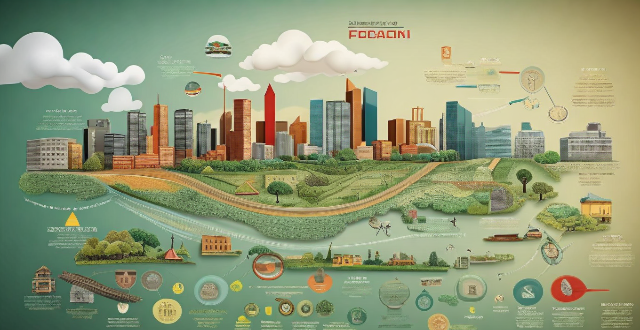
How do global economic trends affect personal wealth growth strategies ?
Global economic trends significantly influence personal wealth growth strategies by affecting factors such as interest rates, inflation, economic growth, global trade, and political stability. Understanding these trends helps individuals make informed decisions about investments and financial planning.

What factors should be considered when planning the location of charging stations ?
When planning the location of charging stations, several factors must be considered to ensure their effectiveness and accessibility. These factors include demand analysis, geographic considerations, infrastructure availability, economic factors, environmental impact, user experience, and technology advancements. By considering these factors, planners can ensure that charging stations are strategically located to meet the needs of electric vehicle owners while also considering economic, environmental, and societal impacts.

How does having a blended family affect estate planning ?
Estate planning for blended families requires special considerations, such as establishing clear intentions for fairness and protection, drafting comprehensive legal documents including wills, trusts, and powers of attorney, updating beneficiary designations, navigating tax implications, and fostering open communication. It is crucial to work with estate planning professionals to ensure all family members are provided for according to the individual's wishes.

How can I legally minimize my taxes through tax planning ?
Tax planning is a crucial aspect of financial management that helps individuals legally reduce their tax liability. Some tips on how to minimize taxes through tax planning include maximizing retirement account contributions, taking advantage of tax credits, investing in tax-exempt bonds, considering real estate investments, utilizing education tax breaks, planning charitable giving, and timing capital gains and losses strategically. Consulting with a tax professional is recommended before making any significant financial decisions to ensure compliance with all applicable laws and regulations.

What are the economic impacts of floods and how can they be minimized ?
Floods have significant economic impacts on communities, affecting various sectors of the economy. Direct impacts include property damage, crop loss, and business disruption, while indirect impacts encompass job losses, population displacement, and economic downturns. To minimize these effects, strategies such as flood defense infrastructure, early warning systems, emergency plans, flood insurance, microfinance, land-use planning, building codes, public awareness campaigns, and capacity building are recommended. By adopting a comprehensive approach, communities can enhance their resilience and reduce the economic repercussions of flooding.
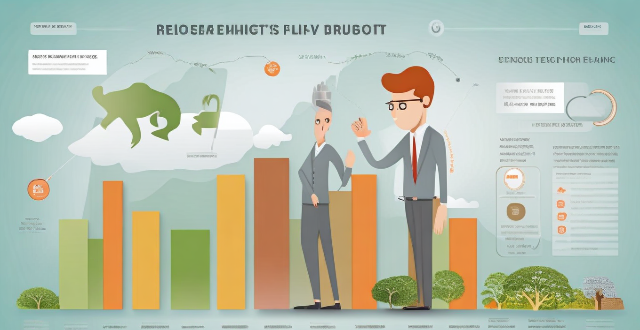
In what situations is it important to involve a financial advisor in budget planning ?
Involving a financial advisor in budget planning is crucial during significant life events, large investments, debt management, retirement planning, and tax planning. A professional can help develop a budget that meets short-term needs while achieving long-term goals.
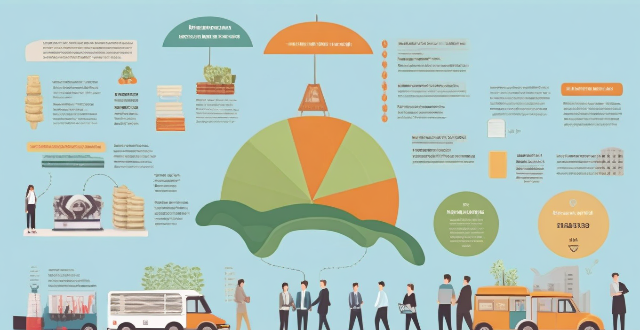
What is tax planning and why is it important ?
Tax planning is the process of organizing one's financial affairs to minimize tax liability and maximize after-tax returns. It involves analyzing current tax laws, understanding deductions, credits, and exemptions, and applying them to personal or business finances. Tax planning is important for legal compliance, maximizing wealth, avoiding surprises at tax time, retirement planning, estate planning, charitable giving, income management, risk mitigation, business strategy, international considerations, and peace of mind. It is an essential part of financial management for both individuals and businesses looking to build and preserve wealth over time.

What is the concept of green GDP, and how can it help measure economic progress while considering environmental factors ?
The text discusses the concept of Green GDP, which is an alternative measure of economic performance that adjusts the traditional Gross Domestic Product (GDP) by subtracting the costs of environmental degradation and resource depletion. It aims to provide a more accurate picture of a country's economic health, one that reflects the long-term sustainability of its growth. The inclusion of environmental costs in Green GDP helps promote sustainable development, encourages policy planning, and raises public awareness about the true cost of economic activities. However, calculating green GDP faces challenges such as complex methodologies, limited data availability, and political will. Despite these challenges, Green GDP offers a valuable tool for promoting sustainable development and fostering a more balanced relationship between economic growth and environmental protection.

What are the economic benefits of investing in clean production technologies ?
Investing in clean production technologies can bring a range of economic benefits to businesses, governments, and society at large. These benefits include cost savings through energy efficiency, resource efficiency, reduced maintenance costs, market advantages such as enhanced brand image and access to new markets, risk mitigation from environmental regulations and resource scarcity, innovation and growth opportunities, and broader environmental and social benefits that contribute to long-term economic prosperity.

What is the best age to start retirement planning ?
Retirement planning is crucial for ensuring financial security and peace of mind in post-retirement life. The best age to start retirement planning varies depending on individual circumstances, but early adulthood (20-30 years old), mid-career (30-40 years old), and late career (40-50 years old) are all ideal times to begin. Early adulthood is advantageous due to the power of compound interest and habit formation. Mid-career offers higher income levels and family considerations. Late career allows for catch-up contributions and debt payoff strategies. Tips for successful retirement planning include creating a budget, building an emergency fund, diversifying investments, seeking professional advice, and staying informed on relevant changes.

How can climate services be integrated into urban planning ?
Climate services are vital for urban planning as they provide data on climate change impacts, aiding planners in making informed adaptation and mitigation decisions. Key steps include assessing climate risks like temperature changes and extreme weather events, enhancing resilience through strategies such as green infrastructure and energy efficiency, and integrating climate services into long-term planning processes. Collaboration, data collection, public education, and monitoring are crucial for effective implementation and refining of approaches over time.

Can economic indicators accurately predict a recession ?
Economic indicators, such as GDP growth rate, employment rate, inflation rate, interest rates, consumer sentiment, and manufacturing/service sector activity, are used to gauge the health of an economy. While these indicators provide valuable insights, their ability to predict a recession is not absolute due to limitations like lagging indicators, false signals, external factors, and policy responses. A combination of indicators and a probabilistic approach can improve accuracy in predicting economic downturns.

What are the potential economic impacts of implementing the Paris Climate Agreement ?
Implementing the Paris Climate Agreement could have various economic impacts, including stimulating innovation and job creation in renewable energy sectors, reducing fossil fuel dependency, improving public health, and promoting green growth. However, there may also be short-term costs of transition, impacts on traditional industries, adjustment for businesses, and global economic imbalances. To mitigate negative impacts, governments and organizations can provide support for workers transitioning to new industries, implement carbon pricing mechanisms, engage in public-private partnerships, and cooperate internationally. Overall, the long-term benefits of avoiding catastrophic climate change outweigh the short-term economic costs, making the agreement a crucial step toward a sustainable future.

What are some effective investment strategies for retirement planning ?
Retirement planning is a crucial aspect of financial planning, and it requires careful consideration of various investment strategies. Diversification helps reduce overall risk by spreading investments across different asset classes. Long-term investing takes advantage of compounding interest and allows for market fluctuations to even out over time. Dollar-cost averaging minimizes the impact of market volatility by investing a fixed amount regularly. Target-date funds offer a hands-off approach with automatic adjustments based on age and time horizon. Tax-advantaged accounts provide tax benefits that can help maximize retirement savings. By using these effective investment strategies, you can build a solid foundation for your retirement planning while minimizing risks and maximizing returns.
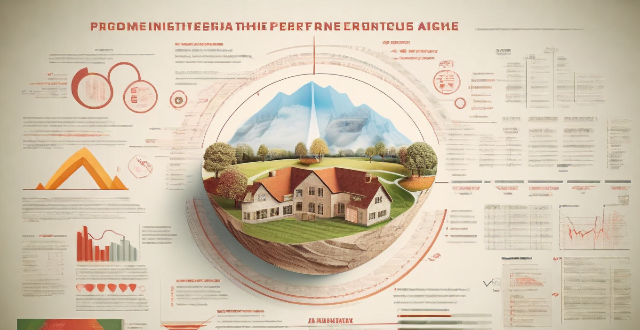
What are the consequences of not engaging in proper tax planning ?
Not engaging in proper tax planning can lead to financial penalties, legal issues, and missed opportunities for tax savings. Financial penalties include higher tax liability, late payment penalties, and interest charges. Legal issues may arise from audits and criminal charges. Missed opportunities for tax savings include forfeiting deductions and credits, inefficient retirement planning, and poor estate planning. Proper tax planning is crucial for minimizing tax liabilities, avoiding legal issues, and maximizing tax savings.

How can we balance economic development and water resource protection ?
Water resources are crucial for economic development but must be protected to ensure sustainability. Strategies for balancing these goals include prioritizing sustainable practices, implementing regulatory measures, fostering collaboration and partnerships, investing in infrastructure and technology, and educating and creating awareness. By adopting these approaches, we can achieve a balance between economic growth and water conservation, ensuring long-term sustainability for all.

How often should I review and adjust my tax planning strategy ?
Tax planning is an ongoing process that requires regular review and adjustment to ensure that you are taking advantage of all available tax breaks and staying in compliance with the law. Here are some factors to consider when determining how often to review and adjust your tax planning strategy: - Major life changes such as marriage, divorce, having a child, buying or selling a home, starting or closing a business, or retirement should prompt a review of your tax planning strategy. - Changes in tax laws can significantly impact your tax liability, so it's important to stay up-to-date on any changes and review your strategy accordingly. - Even if nothing significant has changed in your life or the tax laws, it's a good idea to review your tax planning strategy at least once a year. - For businesses or individuals with complex tax situations, quarterly reviews may be beneficial to stay on top of any changes in income or expenses and make adjustments throughout the year to minimize tax liability.

What impact does consumer confidence have on economic recovery ?
Consumer confidence is a key driver of economic recovery. It stimulates growth, boosts employment rates, reduces unemployment, and increases government revenue. To improve consumer confidence, governments should encourage stable economic policies, provide financial education, promote transparency, and invest in infrastructure.

How do economic systems contribute to environmental problems and climate change ?
Economic systems, especially capitalism and industrialization, significantly impact the environment by promoting overproduction, waste, and reliance on fossil fuels. Issues such as built-in obsolescence, global trade emissions, and exploitation of natural resources exacerbate environmental problems. Additionally, population growth and urbanization increase consumption, while market failures and regulatory gaps often overlook environmental costs. Addressing these challenges requires a shift in economic priorities towards sustainability.

How can I get my family to participate in planning our next dinner ?
Planning a family dinner can be a daunting task, especially when you're the only one involved in the process. However, involving your family members in the planning process can make it more fun and enjoyable for everyone. In this article, we will discuss some tips on how to get your family to participate in planning your next dinner. Involving your family in dinner planning can bring many benefits, such as increased sense of responsibility, improved communication, enhanced creativity, and strengthened family bonds. To get your family to participate in dinner planning, start with a family meeting to discuss the plans, assign roles and responsibilities based on each family member's interests and skills, create a menu plan together, involve your family in cooking and preparation, make it fun and enjoyable, and show appreciation for everyone's efforts. By following these tips, you can encourage your family members to participate in the planning process and make mealtime a truly enjoyable experience for everyone involved.